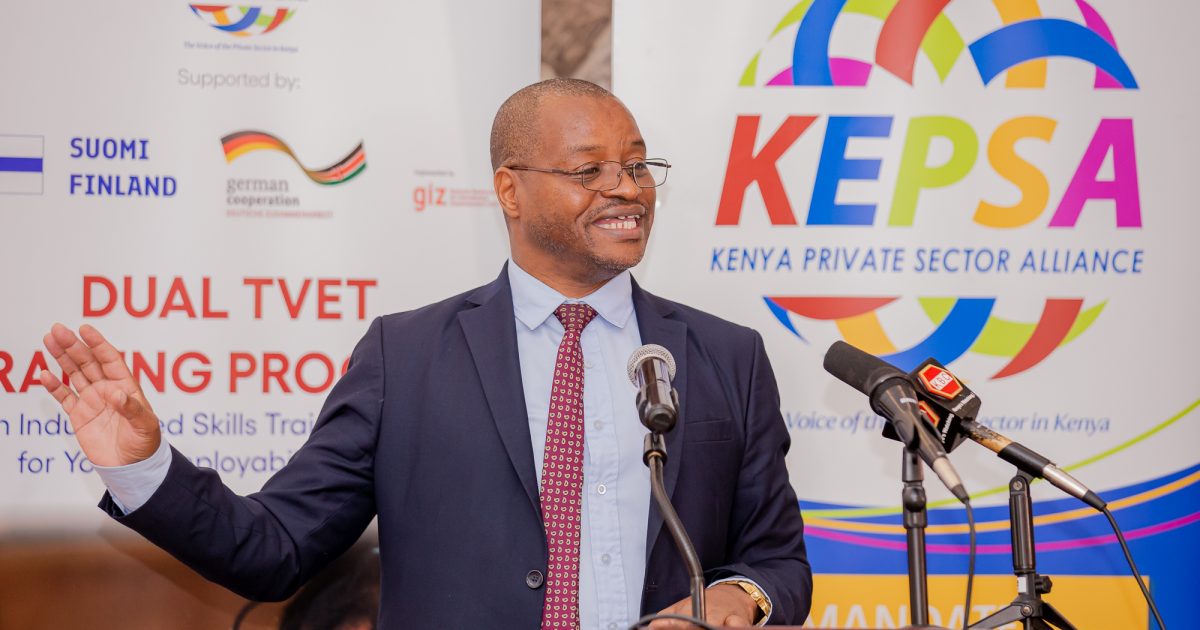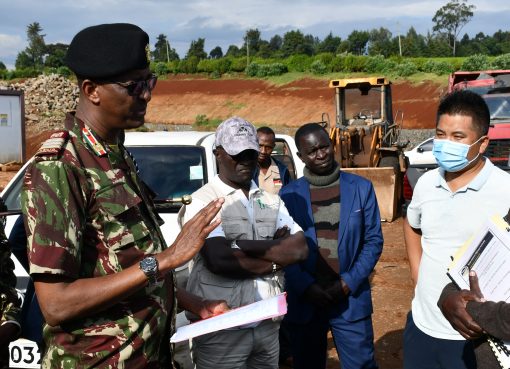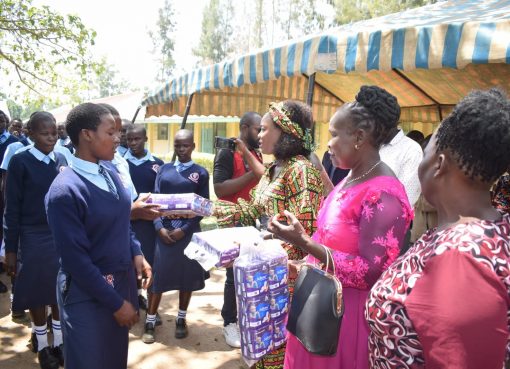The Kenya Private Sector Alliance (KEPSA) has partnered with the Deutsche Gesellschaft fur International (GIZ) to implement the Dual TVET training program that combines apprenticeship within companies and vocational education.
The program will train students on industry skills while still learning in colleges and matching businesses with the right skills to improve their productivity and enhance employee retention rates.
Principal Secretary for the State Department for Technical, Vocational Education and Training (TVET), Dr. Esther Muoria, said that the partnership aims to strengthen and collaborate with states, among them Germany and Finland, between the public, private and established development partners as well as the industries through the dual training program.
She added that competency-based education and training curricula is an approach that emphasizes the participation of practical skills from which students will gain work experience from KEPSA members.
“The government has provided state-of-the-art equipment in TVET institutions as a main means of using the institutional practice experience for the implementation of the idea,” she said.
The PS made the remarks in a speech read on her behalf by the Policy and Strategy Director of TVET in the State Department of TVET Mr. Joseph Njau, during the official opening of the Dual TVET Training Program Partnership 2024 held at a Nairobi hotel.
Muoria said dual training, also known as the working technique of learning, is a model that combines green jobs learning in practical work experience, which comprises 70 percent of training in the industry and 50 percent in given institutions.
“The dual program bridges the gap between dual practice for ensuring that trainees are equipped with the skills and competencies in the rapidly developing country moving for the labor market,” Muoria said.
She noted that the concept of dual training has been implemented in several developed countries for a decade and has been a stronger strategy for imparting practical skills, as well as being one of the best in training students in the industry.
“TVET institutions by 2026 will bring about other components that will ensure that after the project there will be still sustainability,” said the PS.
Muoria announced that her Ministry has set up industries to support skills which will focus on linkages, industrial training, and integrations as a way of supporting graduates with given skills for international and local trade labor market.
She at the same time, added that dual training is an important initiative as it will bridge the gap between the industry’s needs, trainees, and employment.
Speaking at the event, Counselor-Skills and Development and Job Creation, Embassy of Finland, Matts Weurlander, said that the collaboration between partners is crucial because it will equip trainees with skills that will lead to employment for young people according to the industry needs in TVET.
Weurlander said the project aims to solve the skills that students receive, noting that with the dynamic world that keeps on changing, students need to have skills that support flexibility to move and remain innovative.
“Partnership with private sectors is essential as it enables people to go far and also foster the collaboration that is relevant in today’s world,” he said.
The Director of Youth and Jobs at the Kenya Private Sector Alliance, Dr. Ehud Gachugu, said that the private sector aims to promote job creation by giving graduates skills besides bringing together businesses.
He added that TVET should not navigate complex training without skills that are relevant to the job market.
By Sharon Atieno





